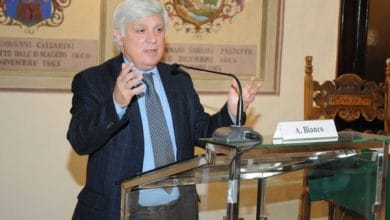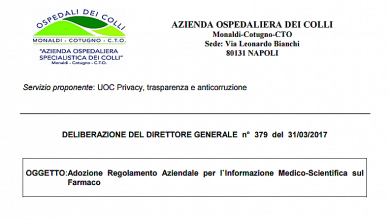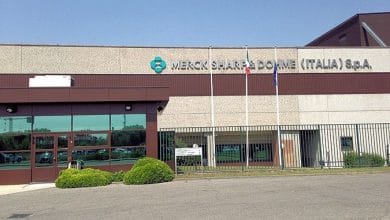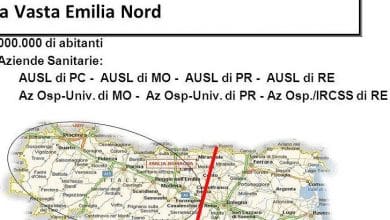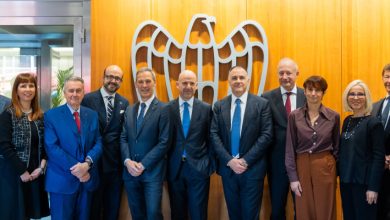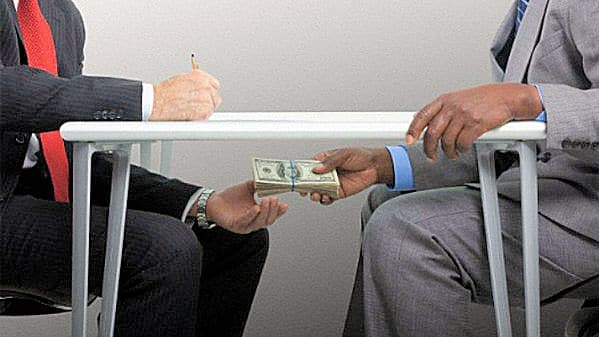
______________________________________________________________
Ed: drug sales representatives are those whose profile is outlined by Legislative Decree 219/06, art. 122.
Infant formula sales agents are NOT drug sales representatives. They do not have the legal requirements nor the contractual framework nor is milk a drug.
_____________________________________________________________
Powdered milk in exchange for gifts, that's what brands
L. Cre. – November 22, 2014 – ITALY THE 19TH CENTURY
La Spezia – That of benefits as a counterpart to prescriptions is a sadly and dangerously widespread system at national level and involves, in fact, the entire panorama of pharmaceutical companies, presenting itself as a proven practice by now».
 The allegations of the investigating judge of Pisa, Guido Bufardeci, contained in the ordinance that led eighteen people to house arrest, including scientific informants, pediatricians and pharmaceutical company managers, on charges of corruption, has at least two extremely serious aspects: the first is that, in this case, the pediatricians had the task of convincing new mothers to breastfeed their children with powdered milk instead of mother's milk, receiving in exchange trips, smartphones, tablets and televisions.
The allegations of the investigating judge of Pisa, Guido Bufardeci, contained in the ordinance that led eighteen people to house arrest, including scientific informants, pediatricians and pharmaceutical company managers, on charges of corruption, has at least two extremely serious aspects: the first is that, in this case, the pediatricians had the task of convincing new mothers to breastfeed their children with powdered milk instead of mother's milk, receiving in exchange trips, smartphones, tablets and televisions.
The second is in the words of the judges: "Proven practice". Phrases that trigger the most disparate reactions, between guilty parties and innocentists. «But I wonder how pediatric doctors can go against the ethics of the profession, against unanimous scientific opinions and against the indications of the Ministry of Health to convince mothers to use powdered formula instead of mother's milk. All to earn luxury gifts and free travel, on the skin of newborn children», comments the Minister of Health, Beatrice Lorenzin.
Eighteen people involved in the operation conducted by the prosecutor of Pisa and by the Nas of Livorno:
Michele Masini, company manager, 50 years old, from Limbiate (Monza) e
scientific representatives Dario Boldrini, 33, and Valter Gandini, 70, both from Pisa, Vincenzo Ruotolo, 64, from Grottammare (Ascoli), Gianni Panessa, 59, from Livorno and Giuliano Biagi, 35, from Massa.
The arrested doctors are the primary doctors Stefano Parmigiani, 57, manager of the Sant'Andrea della Spezia hospital , and Roberto Bernardini, 57 years old, residing in Calcinaia (Pisa), manager of the San Giuseppe hospital in Empoli (Florence), and general practitioners Maurizio Petri, 64 years old, from Cascina (Pisa), Fabio Moretti, 61 years old, from Chianni (Pisa) with surgery in Pontedera (Pisa), Marco Granchi, 61, from Pontedera, with surgery in Ponsacco (Pisa), Claudio Ghionzoli, 63, from Pisa with surgery in Cascina, Renato Domenico Cicchiello, 66, from Livorno, Gian Piero Cassano, of Lido di Camaiore (Lucca) with a clinic in Viareggio (Lucca), Marco Marsili, 59 years old, from Piombino (Livorno), Roberto Rossi, 62 years old, from Palaia (Pisa) with a clinic in Capannoli (Pisa), Eros Panizzi, 61 years old, from Peccioli (Pisa) and Luca Burchi, 59 years old of Volterra (Pisa).
According to the indictment, a round of bribes had been created for hundreds of thousands of euros used to pay for gifts to doctors (all latest generation electronic devices) and travel to tourist destinations (Sharm El Sheikh, India, United States, Paris, London, Istanbul and cruises in the Mediterranean and northern Europe), but also contributions for the organization of scientific conferences which, as we know, give scores to doctors. "Doctor, the more you satisfy us, the more we satisfy you," says one of the arrested, in a telephone interception. And in this sentence would be the whole story.
«The companies involved in the corruptive practices – lists the investigating judge – were the Dietetic Metabolic food (Dmf), the Mellin and, for a single case, the Human Italy. All the companies produce milk and products for early childhood, which doctors undertake to prescribe in their own clinics or, in the case of primary hospitals, through massive inclusion in the so-called shifts through which they are offered to mothers who give birth, at the departments, the brands of the products to be used, thus encouraging their diffusion and sales».
 In the case of the head of Pediatrics and Neonatology at the Sant'Andrea della Spezia hospital, Stefano Parmigiani, the accusation is of «preferentially prescribing Dmf products» behind «delivering an unspecified sum in the form of a contribution to the medical congress» held in Portovenere on 4 and 5 October 2013 and a «further contribution» for a congress in La Spezia.
In the case of the head of Pediatrics and Neonatology at the Sant'Andrea della Spezia hospital, Stefano Parmigiani, the accusation is of «preferentially prescribing Dmf products» behind «delivering an unspecified sum in the form of a contribution to the medical congress» held in Portovenere on 4 and 5 October 2013 and a «further contribution» for a congress in La Spezia.
In a wiretap, Parmigiani said to his interlocutor (Boldrini): «I wanted to offer you, if you were interested, the last two months... if you were interested, right? The last two months of… November and December and the first three months of January, if you're interested.'
That is, according to the indictment, the promise to administer infant formula between the end of 2012 and 2013.
And again: «And I would also need to know something, we had already discussed, for that of November 30», or the conference organized in La Spezia, and which saw him as scientific director and moderator. What the sums are is not proven and there is no certainty that then, the feeding of infant formulaactually happened. The defense of the primary will be based on these points
Infant formula scandal. We are all at "risk" of corruption
23 November 2014 – dailyhealthcare.it
23 NOV – Dear director,
the infant formula scandal with resulting in 18 arrests of doctors, sales reps and company executives makes a public debate on the relationship between professionals and commercial sponsors who, with their reps, enter our studios every day to promote the sale of their products, urgent and unavoidable.
Let us not hide behind a finger thinking that it is only a problem of professionalism, deontology and personal morality because, without prejudice to the unspeakable squalor and sloppiness of the protagonists from what emerges from the telephone interceptions published and it being understood that against the crimes found the judiciary, conditioning by the sponsors is to be considered deontologically unacceptable in any case.
We all experience having participated in national, international, one-day congresses or thematic courses with sponsorship and this did not make us feel subject to corruption, but it is also true that we felt uncomfortable when the informant returned to the our firm to advocate its products more strongly by alluding to our “offered” participation
 We must criticize a CME system that allows for the "sponsorship" of training events and the "recruitment" of doctors to such events in the form of enrollment, travel and accommodation expenses because this involves a more or less explicit conditioning of the professional and also the Sponsor, by recruiting users in a discretionary way, certainly does not satisfy the real training needs of the doctors. Furthermore, there is the risk that the Providers who organize the sponsored training events not only offer advertising space to the companies but risk putting more or less hidden references to that type of drug or milk of the sponsoring company in the scientific programme.
We must criticize a CME system that allows for the "sponsorship" of training events and the "recruitment" of doctors to such events in the form of enrollment, travel and accommodation expenses because this involves a more or less explicit conditioning of the professional and also the Sponsor, by recruiting users in a discretionary way, certainly does not satisfy the real training needs of the doctors. Furthermore, there is the risk that the Providers who organize the sponsored training events not only offer advertising space to the companies but risk putting more or less hidden references to that type of drug or milk of the sponsoring company in the scientific programme.
But is truly independent training possible for a doctor who wants to follow his own path without resorting to sponsors? I think so if it could freely draw on the global telematic databases of scientific publications which now require expensive magazine subscriptions and alongside training supported by public funds and organized by institutions classically appointed to medical training.
Criticism of the ECM system should involve Scientific Societies, Medical Associations, Trade Unions which, instead of establishing themselves as Providers, should act as a sounding board for the demands for independent medical training free from commercial conditioning to reaffirm social, professional and deontological integrity and culture of the figure of the doctor.
Rossana Vitolo
Family pediatrician
The Ethics of Provision. FEDAIISF Florence on the recent scandals.
Investigation into powdered milk, arrested chief physician wanted a congress in Dubai
Powdered milk: risks, prices, legislation
Powdered milk: what the law says
The promotion of infant formula
Article 7 of the Ministerial Decree 500 of 1994 provided that "the advertising of infant formula can only be implemented through publications specialized in childcare and through scientific publications", avoiding in any case to allow "the idea that artificial milk is equivalent or better than mother's milk to be implied or corroborated". With the Decree of 22 February 2005, n. 46, the Ministry of Health has sanctioned new, even stricter regulations on the advertising and sale of baby food. The new article 7 establishes that it is prohibited:
- Any form of advertising of baby food, including those in scientific journals, publications specialized in childcare, on the occasion of congresses, conventions, exhibitions and stands, in medical offices and in points of sale;
- The distribution of free, low-priced samples and gifts to pregnant women, mothers and family members through physicians and health representatives;
- The donation of baby food to institutions and professionals;
- The use of scientific events and congresses to promote the sale of infant formula.
- ( continues … )
DECREE 22 February 2005, n.46 «Art. 7 (Advertising infant formula). – 1. It is forbidden:
a) any form of advertising of infant formulas, including those in scientific journals, publications specialized in childcare, on the occasion of conferences, congresses, stands and exhibitions, in medical offices, in points of sale, as well as through the material informative and didactic;
b) any form of distribution of free or low-priced samples or other gifts of infant formula to pregnant women, mothers and family members, directly or indirectly through the health care system, or through doctors and health informants;
c) donations of any form and type and free supplies of infant formula and equipment to institutions, professionals or other organizations responsible for the birth and
infant care;
d) to resort to other direct and indirect systems, including sponsorship and economic contribution of any kind and in any form to the organization or participation
to congresses and scientific events - with the exception of congresses proposed by scientific societies accredited and authorized by the Ministry of Health - aimed at promoting
sale of infant formula directly to the consumer at the retail stage, which includes doorstep or mail order sales, special exhibitions,
discount coupons, special sales, promotional sales and product bundling;
e) to attribute the recognition of training credits for Continuing Medical Education (CME) for health professionals who participate in training events organized with the grant,
for any reason, by companies that produce or market breast milk substitute products.

